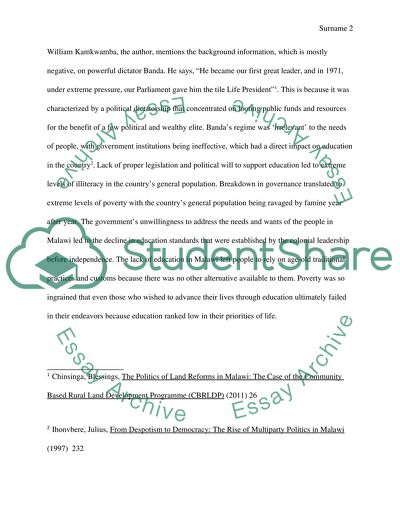Cite this document
(“Education as a Path to Political Awareness in Malawi Research Paper”, n.d.)
Retrieved from https://studentshare.org/education/1490067-education-as-a-path-to-political-awareness-in
Retrieved from https://studentshare.org/education/1490067-education-as-a-path-to-political-awareness-in
(Education As a Path to Political Awareness in Malawi Research Paper)
https://studentshare.org/education/1490067-education-as-a-path-to-political-awareness-in.
https://studentshare.org/education/1490067-education-as-a-path-to-political-awareness-in.
“Education As a Path to Political Awareness in Malawi Research Paper”, n.d. https://studentshare.org/education/1490067-education-as-a-path-to-political-awareness-in.


